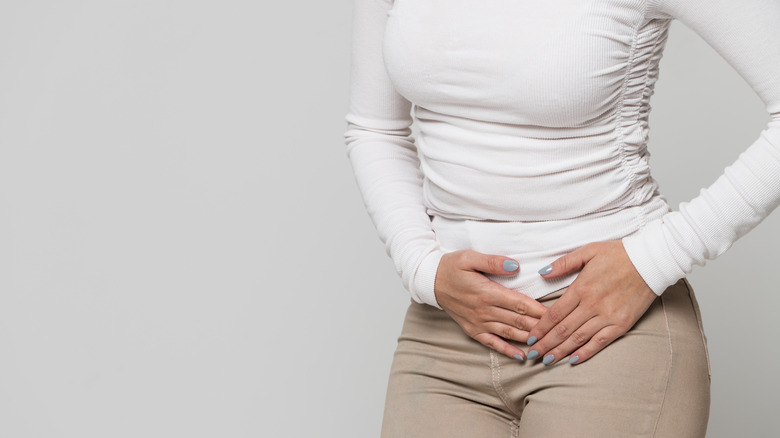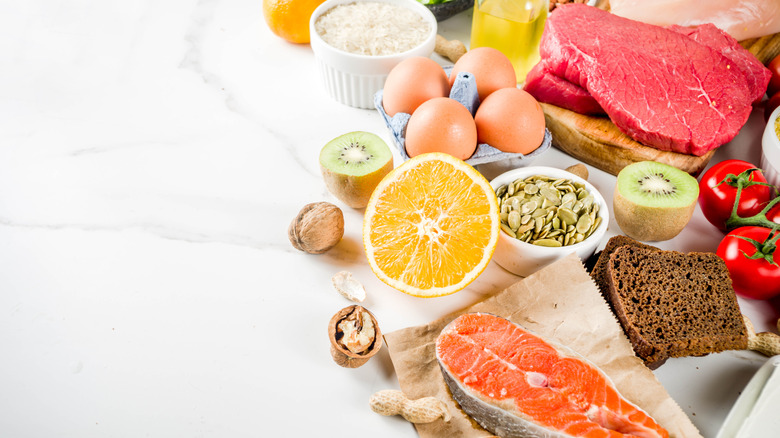What Is The Best Diet For People With IBS?
IBS, or irritable bowel syndrome, is a condition that affects the large intestine. It can cause cramping, stomach pain, bloating, gas, constipation, and diarrhea. IBS is frustrating to deal with and often leaves people desperately searching for ways to mitigate their symptoms. Fortunately, dietary changes can help manage symptoms in some people.
According to Everyday Health, the low-FODMAP diet is the best option for people with IBS. This diet eliminates certain carbs that can cause gastrointestinal distress including fermentable oligosaccharides, disaccharides, monosaccharides, and polyols (or FODMAP).
"This is a diet designed to temporarily reduce your intake of highly fermentable carbohydrates," Chelsea McCallum, registered dietitian and IBS nutritionist, told Eat This, Not That!. Some foods that are eliminated in this diet include onions, garlic, wheat, and legumes, fruits like apples and watermelon, and vegetables like asparagus and artichokes. Many dairy foods like ice cream and yogurt are also cut out. After being on this diet for a period of time, these foods may be slowly reintroduced with the help of a dietician.
There are many alternatives to foods eliminated on the low-FODMAP diet
The low-FODMAP diet may feel restrictive at first because many foods fall within the categories of what is eliminated while following this eating plan. However, there are many foods you can still enjoy. Dairy products containing lactose are eliminated, but you can eat dairy-free versions of those foods instead because they do not contain lactose (via Cleveland Clinic). Plant-based milk, yogurt, and cheese are all okay for consumption. Some dairy products that don't contain lactose are also acceptable, like lactose-free milk and cheeses like brie and camembert.
While many fruits like apples, pears, watermelon, and stone fruits are eliminated while on the low-FODMAP diet, others are completely fine to enjoy. These include bananas, blueberries, cranberries, strawberries, grapes, and citrus fruits. Cruciferous vegetables like broccoli, cauliflower, and cabbage are eliminated but options like eggplant, green beans, carrots, and spinach are fine to be enjoyed.
It can be tricky managing this diet, but it shows great promise to those suffering from IBS.


